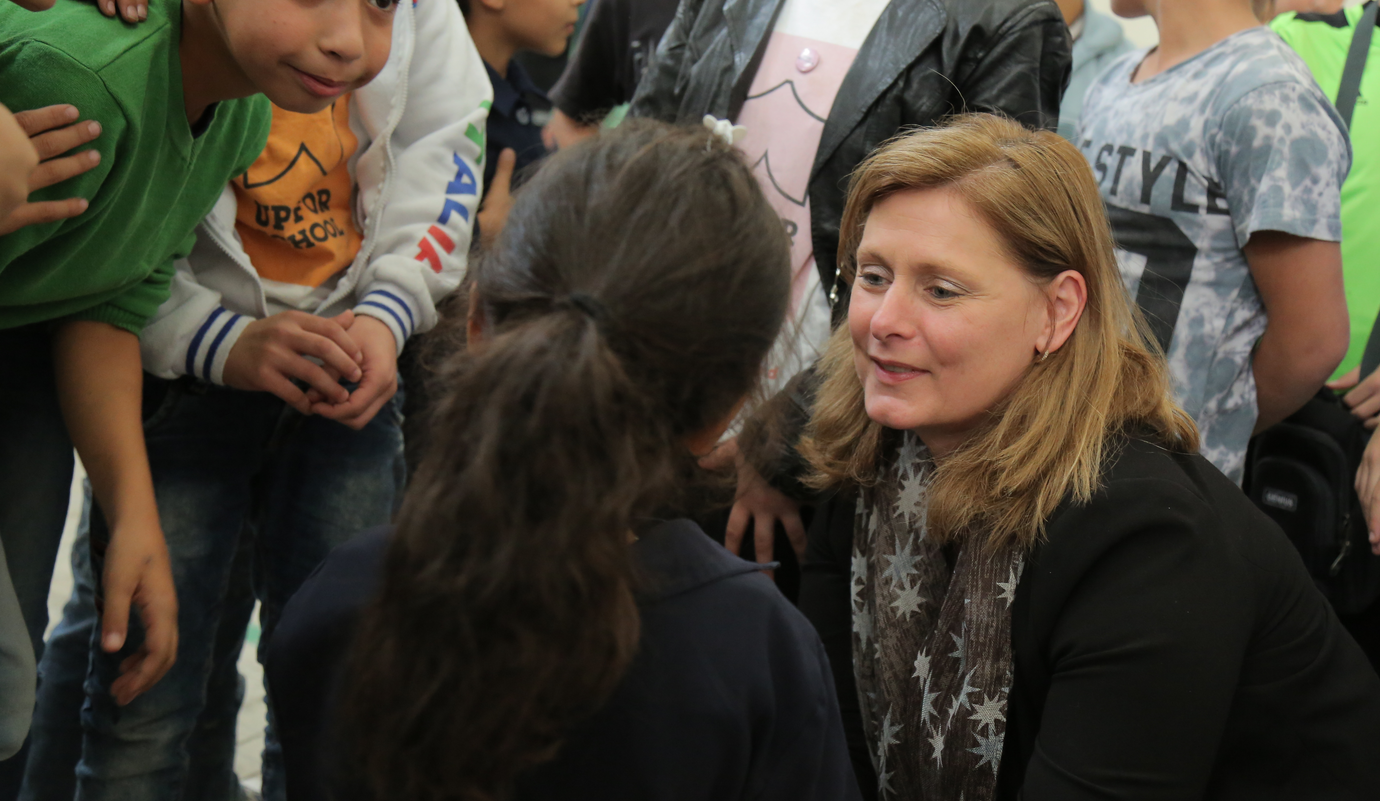
Time to ask why we have failed the world’s poorest and most marginalised children over education
Education funding
Picture: Eva-Lotta Jansson/EFAReport
Few speeches have touched the world – and made history in the process – like Dr Martin Luther King Jr’s “I Have a Dream” speech. Delivered in August 1963 from the steps of the Lincoln Memorial in Washington, D.C., King’s vision of a time when people would “not be judged by the colour of their skin but by the content of their character” has had a profound and lasting impact on our collective conscience.
Working in campaigns and communications for many years, I, like many others, have quoted the speech as an example of why we must give people hope that change is possible and not just focus on the challenges.
In a recent speech, United Nations Special Envoy for Global Education Gordon Brown cited a French quote, saying: “You can survive for 30 days without food, you can survive for eight days without water, you can survive for eight minutes without air but you cannot survive for a second without hope.”
But the reality of King’s speeches is that he didn’t just provide a vision of a better future. He confronted the challenges head on and didn’t shy away from telling the truth and speaking out for justice. He didn’t pull his punches when others wanted him to appease or tone it down. In the darkest hours he gave people hope for a better future but he spoke with urgency and crisis, giving him a prophetic voice.
Graphic: UNESCO
Today, education activists are coming together around the world to give their “verdict” on the last 15 years of action to get every child into school and learning. Promises were made to children in 2000 and the launch of UNESCO’s new Global Monitoring Report is a moment to take stock of the progress and give a verdict.
Do we celebrate the success and tell the world that overall enrolment has gone up from 84% of children in school in 1999 to 93% in school in 2015? Do we highlight the fact that 34 million children born before 2010 that will now have access to school for the first time, a transformative moment for a family? Do we use this evidence and say we have a dream? Yes, we should.
Read about A World at School’s youth version of the Global Monitoring Report.
But this is also a time to speak out for children’s rights and social justice and ask why the failure of governments has resulted in 58 million boys and girls around the world never setting foot in a classroom for a single day. Why is it the poorest and most marginalised that are being excluded? Why we settle for such a blatant example of inequality.
The Global Monitoring Report shows progress in getting children into school has stalled, leaving 58 million children out of school. Donor funding for basic education is inadequate to meet the challenge and, with only eight months to go before the deadline at the end of 2015, there is a serious lack of ambition to get every child into school.
Picture: Tuan Nguyen/EFAReport
This is all coming in the wake of a catastrophic few years for global education – devastating terrorist attacks on schools in Kenya and Pakistan; abductions of school children in Nigeria and South Sudan; the Ebola crisis; and schools destroyed in conflict in Syria, Central African Republic, Gaza and more.
It all makes 2014 and 2015 the worst years ever for the violation of children’s rights and increases the need for action. Despite this, donor countries are failing to address the issue of basic education for all and the lack of adequate financing remains the worst in the poorest and in fragile states.
It’s not a lack of wealth in the world that is keeping children out of school. The economist Jeffrey Sachs recently said that “the world’s richest 80 people have an estimated net worth of around $2 trillion dollars. If they would devote just 1% of their net worth each year, they would cover half the global financial need [to get every child into school and learning]. Facebook, Google, Ericsson, Huawei, Samsung, Microsoft, Cisco and other ICT giants could cover at least another $10 billion per year, in cash and in kind. A few forward-looking governments could then close the remaining gap.”
The education verdict today is about hope for a better future for every child. But it’s a hope that is based on real change and justice for girls and boys out of school.
At the launch of the Global Monitoring Report in India this morning, Nobel Peace Prize winner Kailash Satyarthi said that “one single child out of school is one child too many’” – that’s the kind of hope I can believe in and fight for. A hope firmly rooted in the right of every child to be in school and learning, no matter who they are or where they are born.
More news

